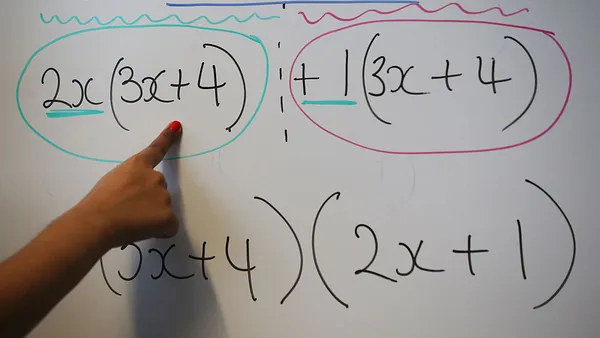Dive Brief:
-
The Baltimore City Public Schools (BCPS) is attempting to close gaps in students' background knowledge with a tool called the Knowledge Map. Developed at John Hopkins University's Institute for Education Policy, the map helps districts develop curriculum around familiar topics and concepts, according to The Hechinger Report.
-
The knowledge gap happens when educators teach specific skills, such as finding the main idea of a paragraph, but fail to teach students about the topic of the text. In BCPS, where the poverty level is high, administrators feel this lack of background knowledge is holding students back, the article says.
-
Gaps in students’ knowledge boils down to being an equity problem. In countries were students perform better academically, content is written in a way that all students can gain background knowledge on subjects, and then leverage that knowledge academically.
Dive Insight:
A report on the Knowledge Map explains that from 5th grade on, students’ reading levels are tied to their background knowledge. Affluence is linked to success on English language arts assessments, but researchers insist this isn’t due to lack of ability, but rather lack of familiarity with a given topic.
Golf, for example, is a sport most often played by those in the middle or upper class. Many lower-income students have never been exposed to the sport. Finding the main topic of a paragraph about teeing off, the rough and holes-in-one may confuse that group of students who have never played. Finding the main idea of that paragraph would be difficult if they had no background knowledge on the sport.
Many education leaders advocate for change in this area. They say that until this knowledge gap is closed, American test scores will lag. This will result in additional gaps in high school graduation rates, as well as college and workforce readiness. Knowledge is developed from the world around us. If students' home environments don't provide opportunities for them to develop knowledge, they will struggle in school because they won’t understand what is being discussed. At a time when experts are urging more attention to choosing high-quality curriculum, tools such as the Knowledge Map can give educators another strategy for ensuring that the curriculum is accessible to the students in their classrooms.







 Dive Awards
Dive Awards





